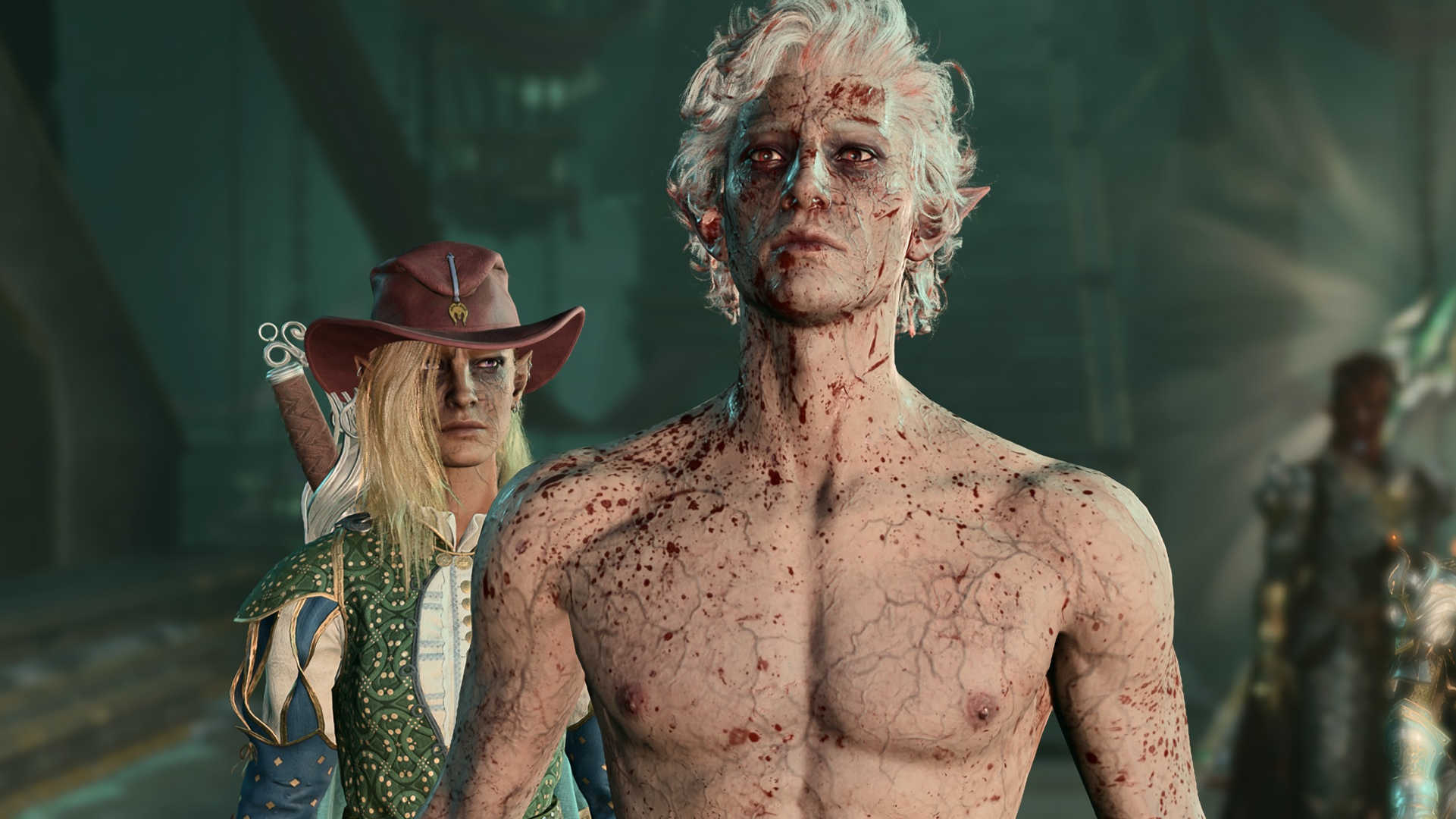
A Baldur's Gate 3 writer has shared the thought process behind Astarion's 'bad' ending, reflecting on the impact that community infatuation with a character can have on the character themselves.
This article contains spoilers for Astarion's storyline in Baldur's Gate 3.
Discord comments from Larian senior narrative designer Baudelaire Welch concerning Astarion and his 'bad' ending were shared on Reddit. That ending hinges on the decisions you make in Astarion's companion quest in Cazador's Palace. If you stop him from Ascending into a powerful vampire lord, you'll get the 'good' endings, but if you let him Ascend, he'll offer to bite you, turning your character into his vampire spawn.
Assuming you accept that bargain, Astarion becomes a far more possessive character, pushing you to accrue power for yourself at the expense of everyone else. In that ending, if you read Astarion's thoughts, Welch says you'll get the line "he will always see you as degrading yourself if you continue to be with him… but perhaps that's what you like."
Astarion’s writer on his endings from r/BaldursGate3
Welch says that that 'bad' ending is "ultimately reducing your relationship with him back to being a kink/form of gratification. Which is a fine thing to enjoy as a fantasy, but it's very much admitting that you failed to think of him beyond a sex object. You're so attracted to him, you'd also turn yourself into [a vampire]."
"It's perfectly nice to fantasise about that," they continue, noting that they wrote one of the most outwardly erotic scenes in the entire game. "But it isn't something that I think is a lesson for real life. And I wanted the bad ending to really make you feel 'I failed to see this video game character beyond my own fantasies. The game was more real than I ever expected it to be.'"
It's a fascinating take on video game romance in general. Baldur's Gate 3 has certainly ignited passions around its core characters, but as one of the biggest recipients of that ardor, Astarion has certainly felt like more of an object of desire than, say, Karlach (for whom I think the community has expressed some more narrative sympathy alongside their infatuation). The idea that you'd suffer for becoming hyper-infatuated with a video game love interest isn't one that rears its head very often, but your potential love interests in Baldur's Gate 3 are also far more vulnerable than in the likes of The Witcher, Dragon Age, or Starfield.
Weekly digests, tales from the communities you love, and more
While Welch isn't Astarion's main writer, they noted elsewhere that they spent several months working closely with the character in addition to their work with the Dark Urge. In those comments, there's further insight into the relationship between the two, touching on similar ideas about the role that the player (as well as the actor, in this case) undertakes in shaping a character. Larian has rarely been coy about the figures at the heart of Baldur's Gate 3, but now that we've had our hands on the game for some time, it's fascinating to get a closer look at how they came to be.

I'm GamesRadar's Managing Editor for news, shaping the news strategy across the team. I started my journalistic career while getting my degree in English Literature at the University of Warwick, where I also worked as Games Editor on the student newspaper, The Boar. Since then, I've run the news sections at PCGamesN and Kotaku UK, and also regularly contributed to PC Gamer. As you might be able to tell, PC is my platform of choice, so you can regularly find me playing League of Legends or Steam's latest indie hit.


